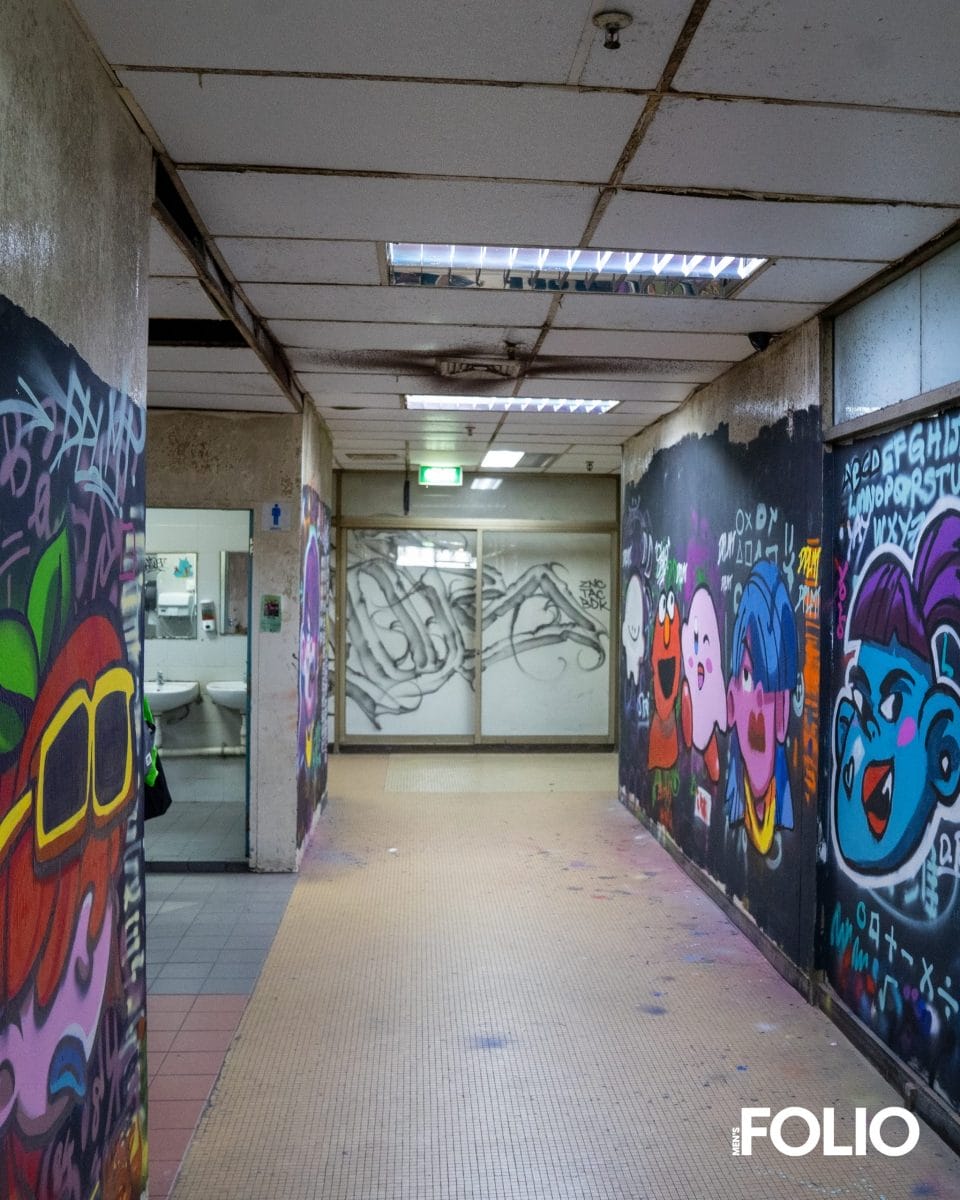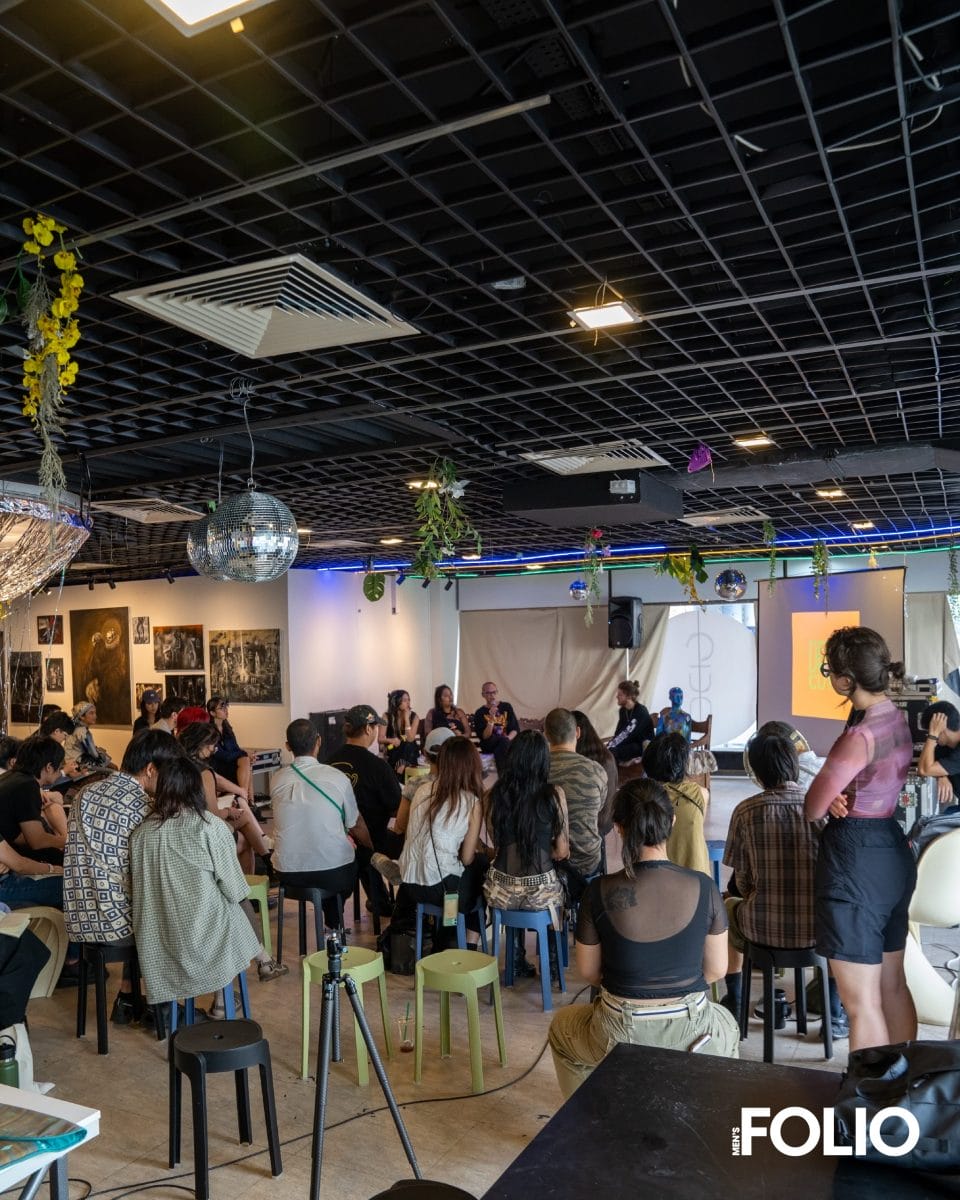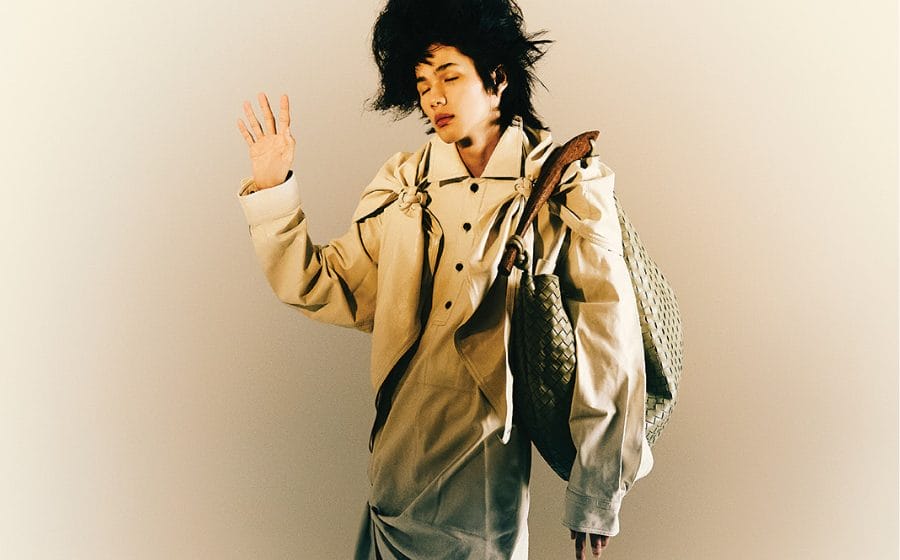Finding Peace
- By Charmaine Tan
 When does a space become a place? What role does physical space play in our love for our community? In an ode to Peace Centre, which closed its doors on January 29, the Men’s Folio team explores the themes of identity, place and community with the participants of Deep Cuts, a grassroots conference celebrating the space and all that the local creative community want to do to continue loving spaces.
When does a space become a place? What role does physical space play in our love for our community? In an ode to Peace Centre, which closed its doors on January 29, the Men’s Folio team explores the themes of identity, place and community with the participants of Deep Cuts, a grassroots conference celebrating the space and all that the local creative community want to do to continue loving spaces.
Space is a very sensitive topic for everyone who lives in land-scarce Singapore. We need it so much that we’ve sought to change the shape of our island to support our activities. Frankly, there’s barely enough of this precious resource to go around for living quarters that further fractioning it out for community use seems a secondary priority at best.
Yet what is the point of a life lived in private without time and a space to share its luxuries? We are social creatures by nature, and no community can exist without a place of interaction and exchange, even if it is a virtual one. A space becomes a place when there is social meaning imbued in its identity, and the refreshing of Singapore’s landscape with more efficiently built physical structures to support the country’s growing demands has called for the local creative community to stand up and speak out to the changing physical identity’s impact on our social and cultural one — in the name of conservation and the spirit of camaraderie.
The latest space to befall the creeping wrath of urban renewal is a mall that sits only a stone’s throw away from many of Singapore’s art institutions and cultural landmarks. Peace Centre was scheduled for tear down earlier last year but had this postponed in light of an opportunity to gather the local community in what is infinitely more than a passionate last hurrah — a gathering of minds and hearts across life stages that share the common desire to preserve what is uniquely ours now, and forever.
At Deep Cuts, a two-day grassroots conference discussing the relationship between identity, space, and community, we chatted with some of the esteemed panellists and participants to explore their takeaways from the conversations. What does a gathering like Deep Cuts do for the younger members of a community who lack the emotional connection with a space? Must this be present for nostalgia to become the reason to actively protect Singapore’s spaces? How do we continue to navigate our geographical limits to foster stronger and more resilient communities and a better relationship with the home we live, breathe, and love in?
Shermaine Mak, 21, Student
A physical place is a place to network, where people can meet, interact, and then form a community. Our understanding of a community is small, especially now, because that’s what social media is. You tend to find community online. You can connect with people more deeply or meet them frequently when it’s an actual place.
These talks and different stores give more meaning to Peace Centre, especially for creatives and younger people in general. Peace Centre is an old building, so the older folk would probably have more emotional connection. But when newer things are happening, and the younger people can participate in it, we give the space our own meaning. Deep Cuts has given me a better understanding of what people are trying to do in spaces like Peace Centre before it goes away and the value of community engagement.
Wang Ruobing, Fine Artist
It becomes a place when a space creates a sense of belonging, identity, neighbourhood, and association. A place forms a collective memory. A physical space offers a feel of a place where you can go and people who you might likely see and/or meet in this particular space. Independent art spaces have their own characters, attracting different communities that share socially significant characteristics such as values, interests, and culture.
The Peace Centre of today remarkably demonstrates how people can transform a space into a place in a very short time. The vibrant and dynamic atmosphere I am experiencing here reminds us that our society should reserve more spaces, giving more opportunities and freedom for creative practices.
Kelvin Tan, 60, Musician, writer and lecturer
A space becomes a place when it evolves into a hub for communities to gather and be together, fostering a sense of belonging. A physical place adds a sense of existential presence among communities, both physically and metaphorically. It completes their sense of otherness and gives them some sense of certainty and direction.
Peace Centre, at her present state, fulfils all that has been stated above and more. It allows different communities to interact in the spirit of camaraderie, uniting them into one humanity, transcending boundaries, all in the spirit of art, joy and love.
Melissa Tan, Ryan ‘The Weatherman’ Cheng
A space becomes a place when it feels safe. Through intentionally designed and programmed spaces, it fosters a home for creative communities to thrive. Being the first of its kind in Singapore, Deep Cuts has brought the creative community together, creating freedom to exercise our artistic expressions. We look forward to creating more opportunities within the region through open dialogue to encourage positive changes and collaboration.

Nate Ng, 30, Music Producer
It plays the role of really providing that space, as literal as that sounds. Obviously, the emotional and spiritual side of that comes after, but without that physical space to begin with, it’s pretty difficult to develop everything else that’s important to us afterwards.
I enjoy what Deep Cuts did for Peace Centre and appreciate all the safe spaces it has provided for us to discuss topics that are important to the creative community. However, I do feel some slight detachment from Peace Centre to Deep Cuts because I didn’t learn anything new about Peace Centre I didn’t already know. I would have liked to have felt more of that Peace Centre essence.
Ginette Chittick, 47, Musician and lecturer
In the 1990s, when I used to make scenes and organise gigs well into the mid-2000s, we would come here for the printing facilities. Also, a music store sells musical equipment, instruments, and things like that. That’s where we would go to buy the stuff.
I hadn’t been here since it became this way, so I was very surprised to see how lively it was, underground and grassroots. I love that; I think for it to flourish, social groups must have established their own set of places to sustain the acts of community building. Unfortunately, not all groups have equal opportunities and abilities to do so.
Also, not all spaces are designed to be appropriate and equal. Subcultures frequently run into these kinds of problems. That’s why the groups frequently adapt to existing spaces, especially in Singapore. Singapore is the land of air-conditioned malls. These strata malls are such great spaces because they’re less governed, there are more spaces owned by individual shop owners, they usually have an eclectic retail mix, and they are generally older. These meet many subcultural group criteria and have always appealed to subcultures. I wish it would last much longer than the end of January.
Suran, 22, Student
I’ve read about this, where people usually have this third place, separate from work and home. It’s where you meet people for the sake of human connection. A place dedicated to that, which I think is fading away from Singapore like now, is very important.
Deep Cuts has been really useful in consolidating all the perspectives around the art space and Singapore because there was a lot of conversation about how it’s evolved over time, which I think was very interesting to hear. We’re really young and don’t know the beginning of that scene here. So that was cool to hear about. And I think it’s useful to visualise what the art scene will become in the future after the space closes down.
Hanif, 24, Rapper
As of this moment, I think this space is the dopest it has ever been because it’s the most free it’s ever been. Unfortunately, it’s because it’s shutting down. Hopefully, individually, a space like this can be as freely open and susceptible to expression as this, even though this is Singapore.
Once you are done with this story, click here to catch up with our February 2024 issue.
RELATED ARTICLES

The AI-fication Of Facial Treatments






